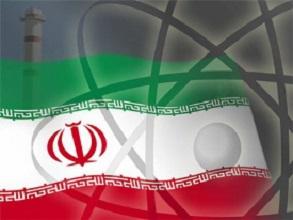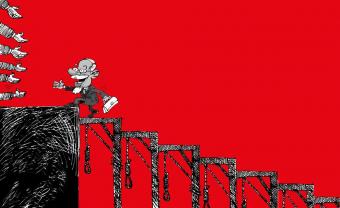Deal or no deal, Islamic Republic is the winner

When the Joint Action Plan was agreed upon back in 2013 to reach a deal by this past July on Islamic Republic of Iran’s controversial nuclear program, the parties involved in the negotiation, P5+1(5 Permanent members of the Security Council plus Germany) and Iran agreed to extend the talks till November 24 to reach a deal. As no deal was reached this time around and the talks were extended for another seven months, one wonders if there is a slim possibility that any deal will ever be struck.
Negotiations with this regime on its nuclear debacle date back to 2003, when now the President of Iran, Hassan Rouhani was then the regime chief nuclear negotiator. In a deal then struck between Iran and European foreign ministers, Iran agreed to suspend its uranium enrichment activities. Following two years of talks between EU3 and Iran, Iran violated the terms of the agreement in 2005 which led to the referral of Iran’s nuclear dossier to the Security Council by the IAEA a year later. Iran abandoned talks for some time and started spinning centrifuges by thousands, resulting in four consecutive Security Council Resolutions and unprecedented European and American financial embargo. Faced with economic turmoil, Iran returned to the negotiation table, but called it quit in 2012 after the deal was not to Khamanie and Revolutionary Guards’ satisfaction.
Now, a year has passed since this last round of negotiations started; many speculate that the two sides were much closer a year ago than they are now, and postponing a possible deal to July of next year means all sides have given up on a deal after all. Both sides are bargaining with leverage; Iran firmly believes there is no dialing back on its nuclear advancement. The West and the US in particular argue that sanctions - despite some temporary relief - will remain intact, if not broadened. All sides know too well the outcome of the negotiations; nonetheless, each side - for their own reasons - prefers the extension and continuation of the negotiations to walking away.
Intentions
In the past there might have been doubts – at least from the Iranian perspective – regarding US intentions to resolve Iran’s nuclear dilemma peacefully; however, there can be little to no doubt about the Obama administration’s determination to reach a deal with Iran on its nuclear issue. President Obama has gone all in to get a deal, including direct phone call with its counterpart in Iran, first between the two since their strained relations in 1980.
In contrary, Khamanie has opened up the nuclear dossier and allowed talks for a simple reason: now that the regime’s nuclear secret is out in the open, the regime must find other ways to continue its illicit nuclear activities, i.e. pretending to negotiate, but in essence wasting and buying more time to breakout. In 2003, the regime was only starting to enrich, where in 2013 uranium enrichment was above 20 percent. This quote from Rouhani's 2011 book well illustrates the regime’s intentions of actively engaging in the talks abroad and advancing their nuclear program at home . "While we were talking with the Europeans in Tehran, we were installing equipment in parts of the facility in Isfahan. In fact, by creating a calm environment, we were able to complete the work in Isfahan."
Ambitions
On the other side of the table, the Europeans - and now the Americans - are too ambitious and idealistic about possible rapprochement with Iran that can result in change of behaviour and reform in the clerical Iran. The flawed assumption is that by negotiating with and offering carrots, the so-called reformers in Iran will be bolstered, overlooking the reality that real power in Iran is vested in the office of Supreme Leader and the notorious Revolutionary Guards, especially matters related to foreign policy and security.
Expectations
It is evident that a nuclear-armed Iran in the hands of fire-band clerics is unacceptable to the international community. Regional Arab powers such as Saudi Arabia and Israel are adamant to prevent the clerics from becoming nuclear, let alone acquiring weapons-grade. The US position has been clear, and President Obama well stated his administration’s resolve to prevent Iran from building nuclear weapons. "There should be no doubt -- the United States and the international community are determined to prevent Iran from acquiring nuclear weapons,” stated Obama in a July 2010 at the signing of the Iran Sanctions Act.
If the Islamic Republic’s quest to acquire nuclear power was for sole peaceful purposes, the regime would not have concealed it from scrutiny in the first place. This regime armed with an interventionist, confrontational ideology views nukes as deterrence against any foreign threat; moreover, it views it as a tool to pursue its hegemonic policies. It would be foolish to assume that this regime has wasted billions solely for unnecessary nuclear power, given Iran’s abundant energy supply.
Avert
Lastly, so long as the nuclear negotiations are underway, other outstanding and similarly alarming issues will be kept out of the spotlight. Ever since the Obama administration pursued its ‘unclenched fist’ policy toward the Islamic Republic, there has been little or no mention of other issues on the table. The Obama administration kept quite in the wake of a yearlong opposition protest in 2009 that could have toppled the regime. For the sake of talks, the administration remained silent on the Iranian direct involvement in the bloody conflict in Syria, support for terrorist groups in Lebanon and Gaza. Iran, on the other hand never shied away from its traditional expansionist and destructive policies.
The regime in Iran knows too well that as long as they can entertain their adversaries with nuclear dance, there would be little appetite or will to focus on other issues that are much more existential to the regime. It is a wishful thinking, not in seven months, even in seven years no deal will be signed, and if one is signed, it is when either the regime will eventually walk away or reverse course towards building a bomb.
Sharif Behruz 11/24/2014

